Leading Under Fire: Georgetown Qatar Global Diplomacy Masterclass in Session
When during the first week of November world leaders arrived in Doha for the Second World Summit for Social Development, the ideals of human-centered development and global solidarity weren’t just being discussed at the convention center—they were being lived, tested, and challenged inside the walls of Georgetown University in Qatar (GU-Q), where students were shaping the conversations that will define their generation.
That week, Qatar’s ambitious vision for a whole-of-society approach to global problem-solving was on full display.
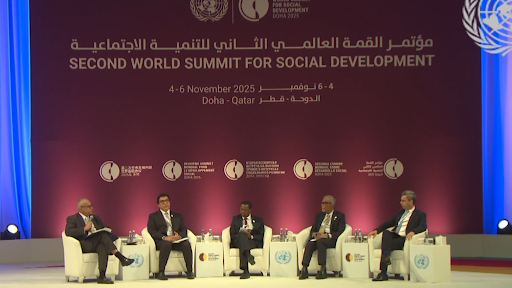
Dean Safwan Masri joined the Summit to moderate a panel on “Education and Workforce Development for a Future-Ready World,” arguing that the future of learning is “an ecosystem, where ideas circulate and renew across a lifetime.”
On day two of the Summit,GU-Q convened two of the UN’s most influential voices—H.E. Annalena Baerbock, President of the 80th UN General Assembly, and Stéphane Dujarric, Spokesperson for the UN Secretary-General—directly into conversation with its students. The result was electrifying.
For Moza Al Hajri (Class of 2026), an economics major with minors in Arabic and History, this wasn’t just another campus event; it was a defining moment. She stepped onto the stage to moderate H.E. Baerbock’s keynote, “Our World Today, Your World Tomorrow,” at a time when student emotions were running high: nearly 100 students had walked out in protest, an expression of their profound anger and sadness about the situation in Palestine–and what the students contended was the UN leadership’s culpability. The discussion that followed was raw, gripping, and deeply human.
Moza explained that remaining steady on stage did not mean being detached. “Of course I have my own views,” she said. “But in that moment, my responsibility was to hold a common ground where a very difficult conversation could happen without collapsing.”
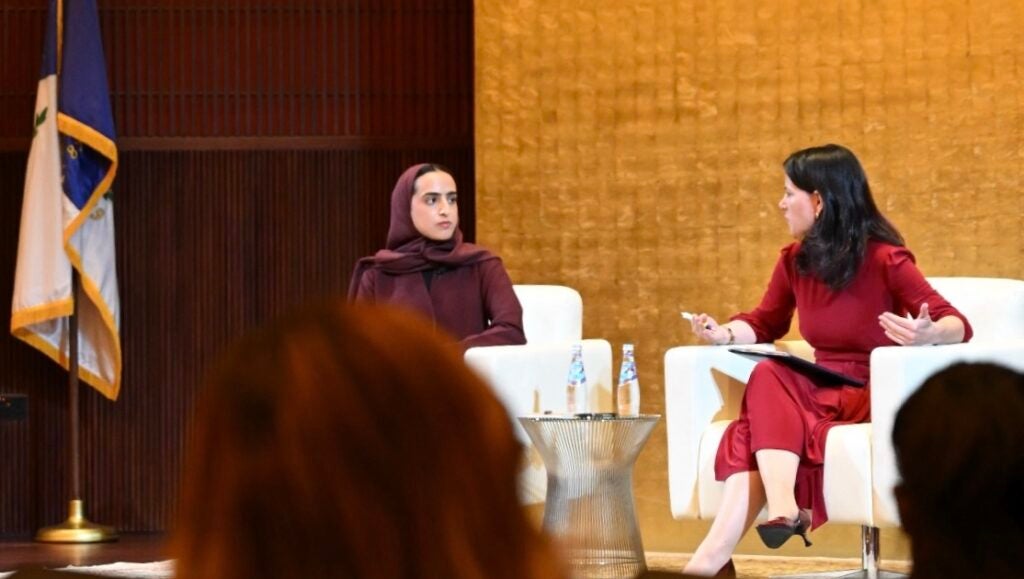
She added that creating space for disagreement is something she has learned through years of competitive debate and expects to draw on throughout her future in public service. “Moderation isn’t about taking sides,” she said. “It’s about creating the common ground from which disagreement can be expressed honestly and heard clearly.”
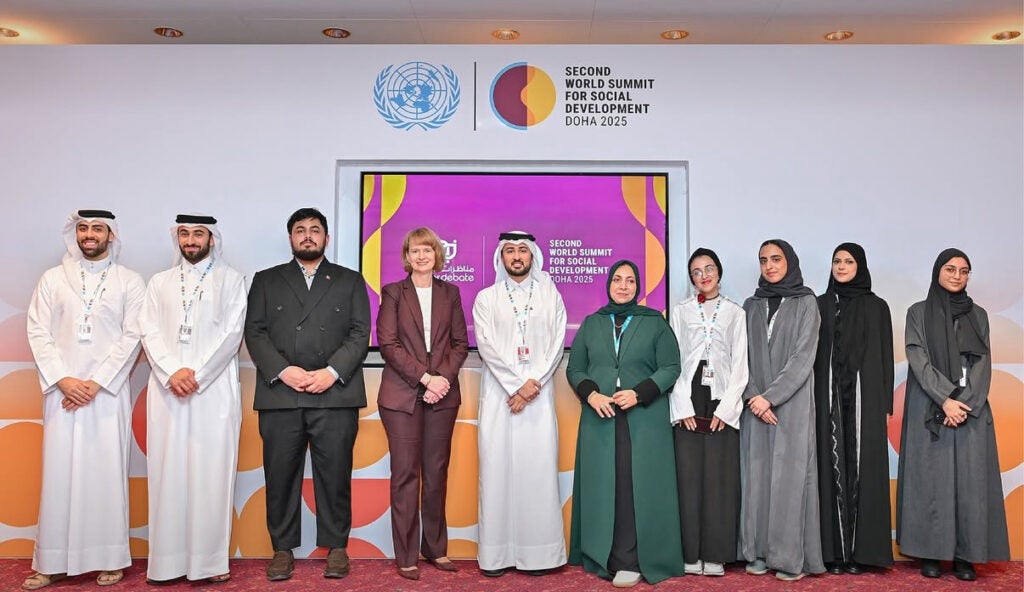
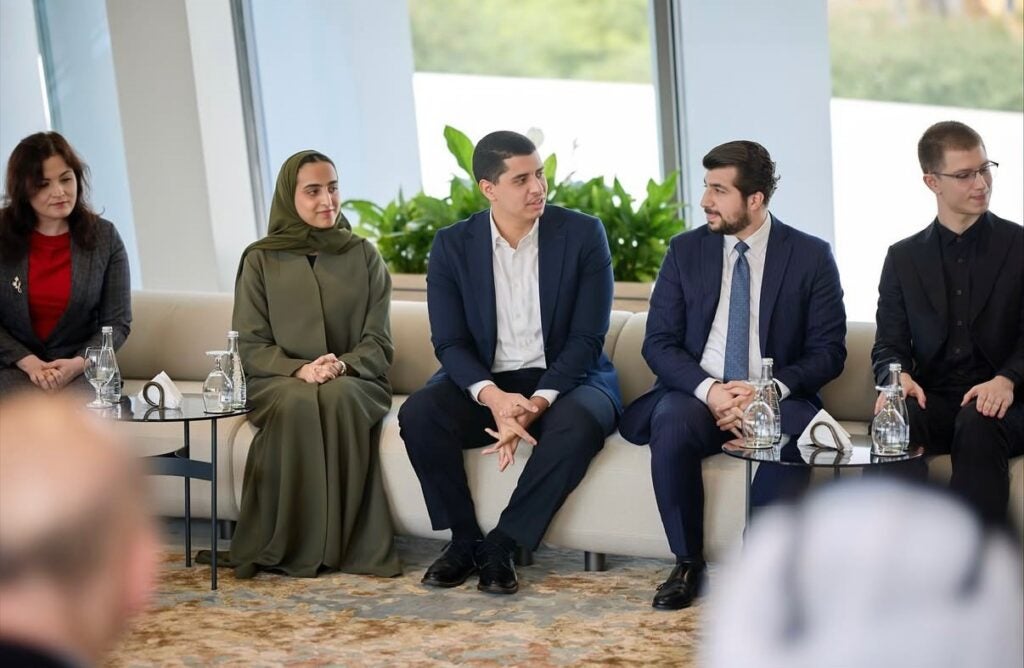
Balancing candor and diplomacy, Moza grounded the conversation in Georgetown values. Acknowledging the grief of students who lost family in Gaza, she reminded the audience of the importance of dialogue: “sitting in rooms, even with adversaries, and fostering that dialogue. That is why Georgetown is hosting this event, and that is why Qatar hosts mediations.”
The questions that followed—from disillusionment with world leaders to critiques of Germany’s policies—were among the most confrontational GU-Q has ever seen. For Moza, the moment captured what it means to study at a School of Foreign Service in Doha—a city that positions itself as a meeting ground for dialogue, even when dialogue is strained. “Engagement is never easy when the stakes are high,” she reflected. “But isolating ourselves from the diplomacy unfolding around us isn’t the answer either.”
Rather than a display of agreement, the exchange became a demonstration of composure under pressure—of what it means to hold space for disagreement without surrendering to it.
Moza’s leadership on campus, including her work as chair of the Georgetown Ambassadors Society, had prepared her long before this moment. “By the very nature of Georgetown classes, we are always disagreeing in class, we’re always debating in class. So I think this definitely prepares you,” she said. “They learn new tools to try to be advocates for wherever they come from and whatever they care about. It builds that kind of passion to advocate.”
As Dean Masri noted in his introduction of H.E. Baerbock, GU-Q’s two decades of engagement with the UN—including hosting the country’s longest-running Model United Nations event and the MENA region UN Local Council of Youth—reflect a commitment to fostering productive debate. “Education here cultivates reflection, the courage to ask difficult questions, and the discipline to face their answers,” he said. Hosting UN leaders, he added, is “a testament to the intellectual and moral space we create for honest and consequential dialogue.”
Two days later, Dujarric—himself a Georgetown SFS graduate—spoke candidly about his journey at the UN, offering students a road map to positions of influence. “I plugged into it at different times in my career,” he said of the Georgetown network. “It is very supportive in terms of creating links, asking for an interview, and asking for advice.”
Moza’s Summit activities continued unabated. Later in the week she participated in a youth-expert debate hosted by QatarDebate, and joined H.H. Sheikha Moza bint Nasser for a meeting with H.M. the King of Belgium in Education City, introducing him to students and sharing her own story. Through it all, she carried forward a message central to GU-Q’s identity: “I always think you have a contribution to make, no matter how large the problem.”
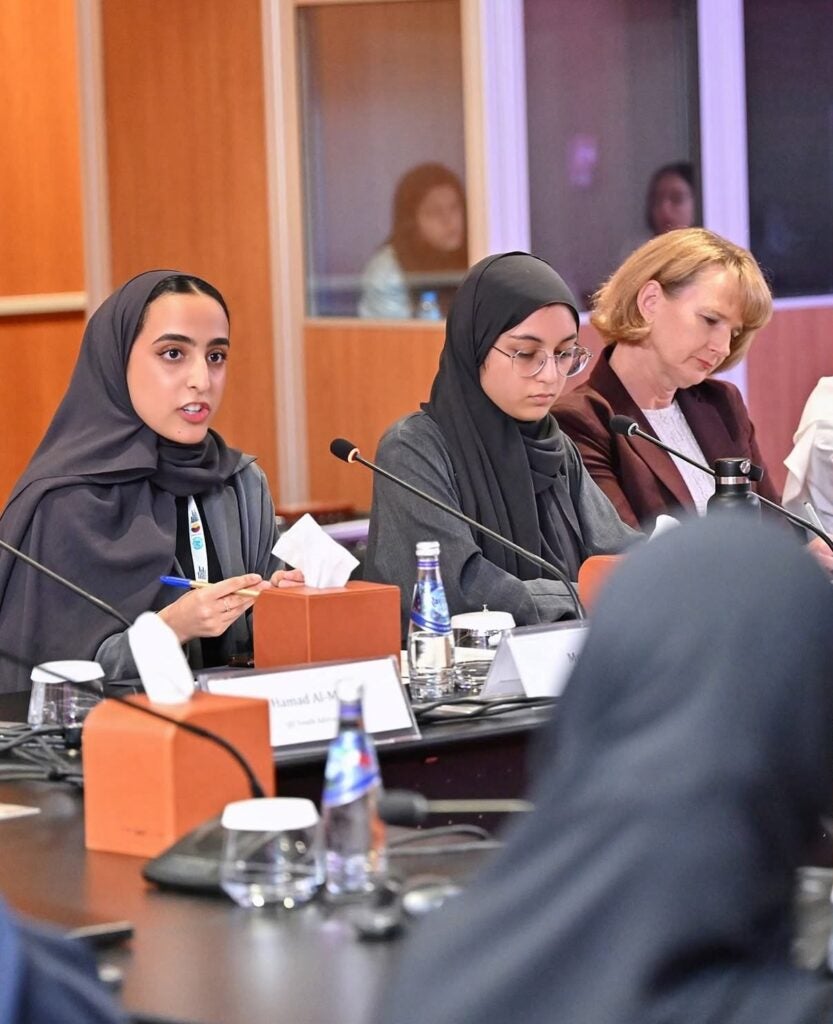
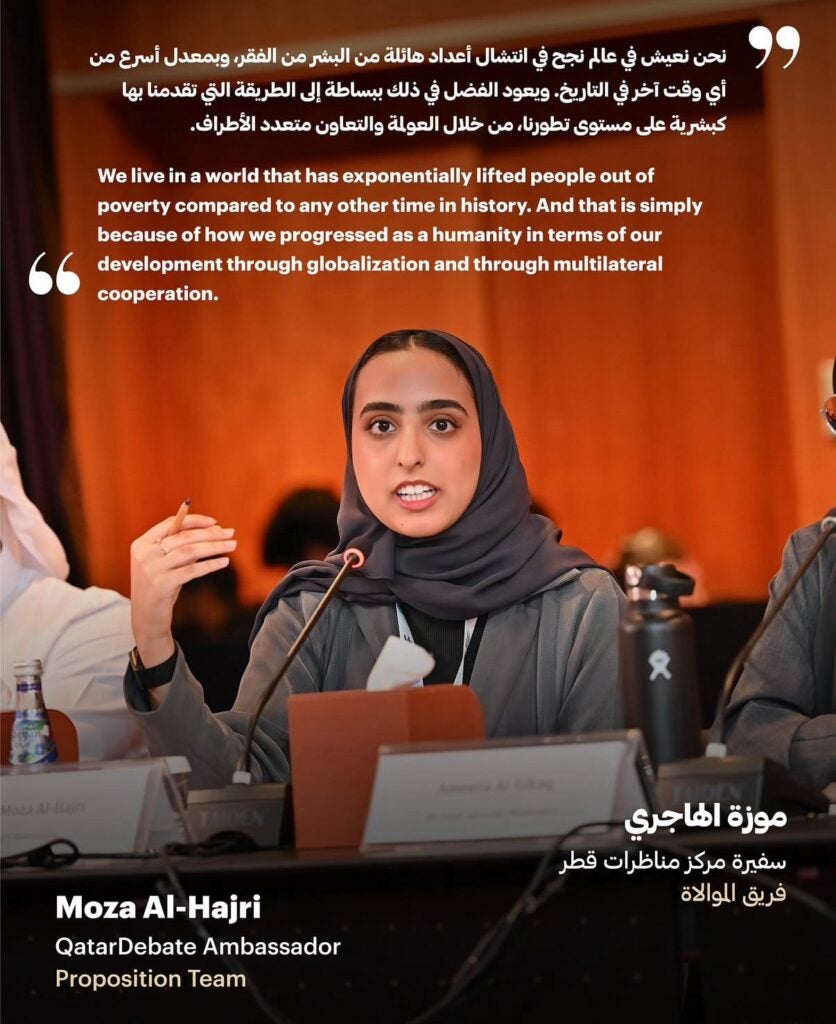
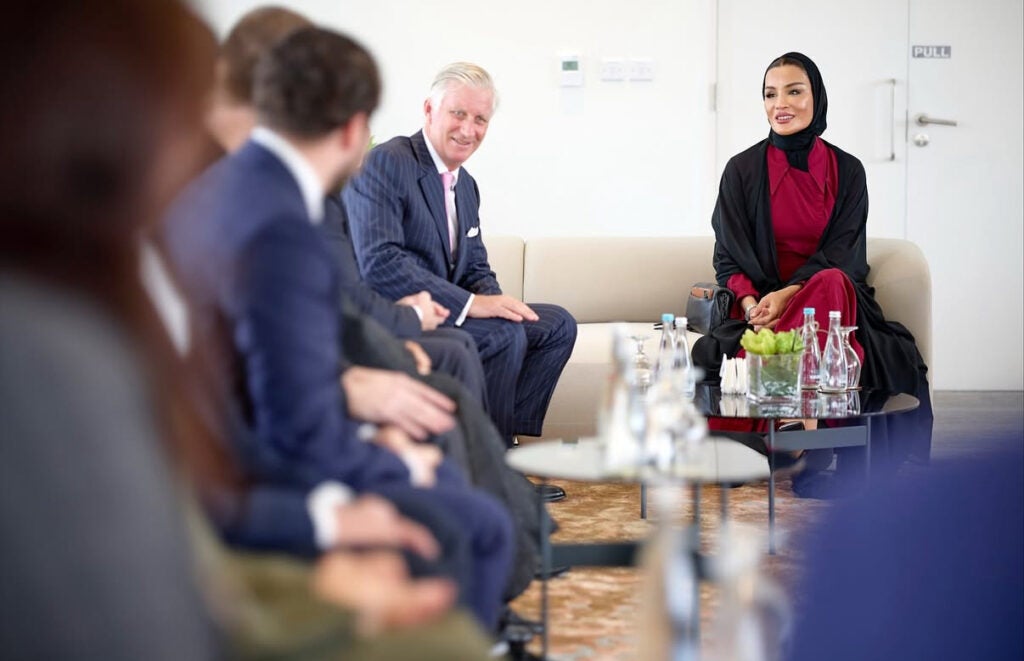
Moza’s experience is a vivid example of what it means to study international affairs in a country known for mediation and encounters between the Global North and South. This is where theory meets action—where the diverse student body doesn’t just learn diplomacy; they practice it.